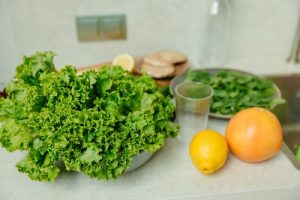Why Self-Love is Not Just for Moon Goddesses
For some people, “self-love” conjures images of women’s circles, dancing and drumming in the moonlight. Or something like that.
But here’s the reality; self-love is for everyone. Why? We’re all human beings on planet earth and everyone carries some degree of trauma, suffering or woundedness.
I haven’t met a single exception yet.
Self-love is a primary key to overall wellbeing. It’s essential to mental and physical health, personal and professional satisfaction, and enables us to live a more rich, full, joyful life.
If you’re not sure where to start, here are seven ideas to become more self-loving and create greater wellbeing, health, satisfaction, and joy in the proverbial ‘month of love’ and all year round.
Seven Ways to Cultivate Self-Love:
1) Self-love jar or box: Take squares of colored paper, and jot down your wins, things that make you feel proud or grateful, activities that help you feel content or grounded, or acts of kindness that you have exhibited, witnessed or learned about. Place them in a jar or box to read when you are feeling down or self-critical.
2) Create a self-love journal or scrap book: Include inspirational quotes, positive thoughts, messages of praise, insights or epiphanies, moments of awe, self-love journal prompts (Pinterest is a good free resource), or images that make you feel uplifted. Write or paste these into your journal and contribute regularly.
3) Try new things, especially those outside of your comfort zone: Get a new hairstyle, discover a new favorite place to eat or learn a new recipe, explore a new town or city, find a new walking, biking or hiking route, practice a new hobby or activity you’ve been meaning to learn, reach out to a new or prospective friend, read or listen to a new personal-development book or podcast.
4) Take care of something you’ve been avoiding: Schedule a medical appointment, start a home repair or book a professional, complete overdue paperwork or a business project, run that dreaded errand, review your banking or investment accounts, or file taxes early (!), warmly reach out to someone you’ve been estranged from, but who you’d like to reconnect with.
5) Try a guided self-love meditation or guided affirmations for self-love: There are free recordings on YouTube, Headspace, Insight Timer and other apps. Learn about Ho’Oponopono or practice loving kindness, also called metta meditation. Start with a basic phrase, “May I be happy, may I be healthy, may I be safe, may I live with ease.”
6) Commit to the one self-care habit you feel would be the most impactful: Commit to an earlier bedtime, start a morning or evening routine, eat more greens, drink more water, pick an area to declutter such as your workspace or closet, spend time outside, begin a movement routine you actually look forward to, schedule self-care appointments such as massage, chiropractic, acupuncture, reiki, hypnotherapy, personal training or yoga.
7) Be still and release: Close your eyes. Breathe deeply for 3 or more breath cycles. Identify an area where you feel mild guilt, shame or regret. Feel the emotions and sensations. Imagine placing them in a bubble of light and watch the bubble float up into the sky and out into the universe. Forgive yourself and feel those emotions and sensations. You may notice a mixture of relief, sadness, or gratitude. Imagine placing the emotions and sensations of forgiveness into a bubble of light at your heart and expanding out and down through your torso, limbs, head, and melting into the ground beneath your feet. Rest for a few minutes, observing your breath. When you’re ready, open your eyes. (For healing more intense experiences, emotions and sensations, please work with a professional.)
When we feel self-love, it’s easier to act in ways that are self-respecting, self-accepting and self-caring.
If you’re ready to bring more self-love into your relationship with yourself, but struggle with self-judgment, self-criticism or self-rejection, reach out for your FREE Clarity Call.
Disclaimer: This post is for informational purposes only. It does not constitute medical advice, or replace treatment or intervention by a qualified medical or mental health professional.





